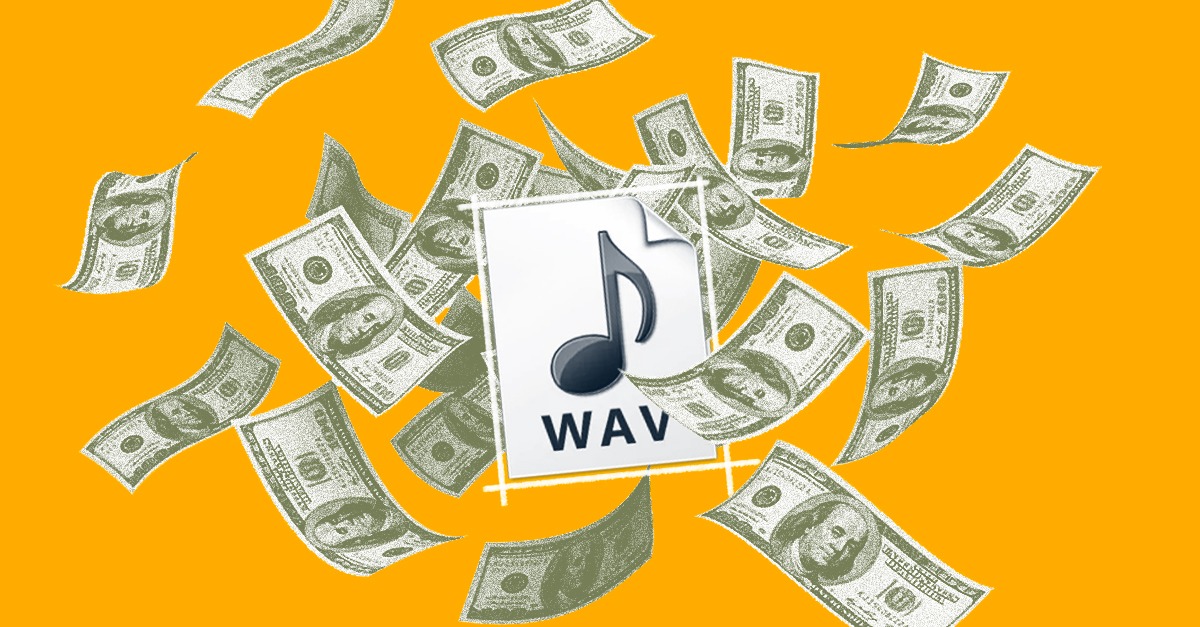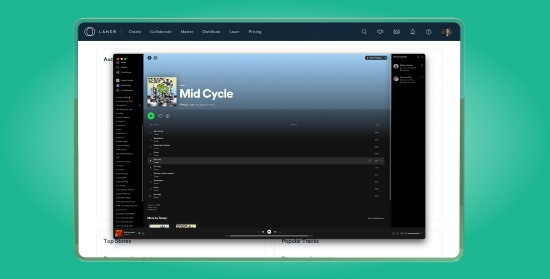Music Royalties: How You Get Paid for Your Streams

It’s totally possible to make money with your original music.
Aside from live performances and physical merch, most artists rely on streaming revenue, royalties and music publishing as the main source of income from their music.
But knowing exactly how the royalty system works isn’t always clear cut.
There are different kinds of royalties and different organizations that pay them out. Plus, you have to make sure your metadata is properly recorded to collect every cent you’re owed.
In this article, I’ll clear up any confusion around the music royalty system and give you the confidence you need to be sure you’re collecting all of your royalties.
What are music royalties?
Music royalties are payments made to the owner(s) of a particular musical work, recording, melody or performance. They are paid by Performing Rights Organizations (PROs) like ASCAP, SOCAN or BMI, and they’re paid by licensors of a particular work sold by a music publisher.
There are two kinds of music royalty—mechanical royalties and performance royalties.
What is a performance royalty?
A performance royalty is a royalty that’s owed any time your music is played on the radio, TV, streaming website, presentation, video game, in a store or performed in a live venue.
Keeping track of all those performances is no simple task—that’s why PROs exist. They collect your performance royalties on your behalf.
They work with media companies to collect any royalties owed and they pay out the royalties to any artist who is registered with the PRO.
There are two kinds of music royalty—mechanical royalties and performance royalties.
What is a mechanical royalty?
A mechanical royalty is a royalty owed to the composer or publisher of a musical work every time a physical copy of your music is physically manufactured, downloaded or streamed.
A mechanical royalty is owed whether or not the composer is the one performing it, meaning a mechanical royalty must be paid to the composer if a song is covered.
PROs do not collect mechanical royalties. Instead, it’s on the composer or publisher of a piece to collect these royalties.
Royalties vs. Licensing
You may be wondering: what about movie deals and big advertising placements? Aren’t those royalties too?
The answer is yes and no. You’re entitled to a royalty every time your song is performed on TV or in an advertisement.
But these royalties are paid on top of the sync licensing agreement made between your publisher and the media company.
Royalties are paid on top of the sync licensing agreement made between you the media company.
Usually, it’s the sync licensing deals that make the big TV deal style payouts. But, it doesn’t hurt to collect your royalties on top of those sync payments.
Of course, you’ll most likely have to work with a publishing agent to find a big sync licensing deal.
But, there are a few ways to find them independently too.
If you’re curious about sync licensing, we’ve written lots about it in previous articles. It’s a pretty big topic on its own.
How to collect all of your royalties
If you’re an independent artist who’s starting to get some traction on streaming platforms and radio, you’re probably wondering if you’re collecting everything you’re owed.
Here’s how you can make sure you’re collecting your mechanical and performance royalties.
Sign up with your designated PRO
The first place to start is to sign up with a PRO and start collecting performance royalties.
Your PRO will depend on where you live: ASCAP and BMI serve the United States, SOCAN is the Canadian PRO and SESAC serves Europe.
Sign up with a PRO and start collecting performance royalties.
It’s a little bit of paperwork that can go a long way. The good news is that you can retroactively claim any royalties from your PRO, even if you sign up after they’re owed.
So if you sign up now, you might get a larger cheque because your royalties have just been sitting there.
A PRO can help with performance royalties but what about mechanical royalties?
Get your mechanical royalty metadata right
With digital distribution services, your mechanical royalties are still on the table. Every time your music is streamed, downloaded or purchased physically you are owed this royalty.
Don’t lose out on this extra streaming revenue!
As long as you don’t have a publishing arrangement with a music publisher, a digital distribution service like LANDR Distribution will collect your mechanical royalties for you.
But be careful—when you release your tracks with a digital distribution make sure you record your metadata properly.
Be careful—when you release your tracks with a digital distribution make sure you record your metadata properly.
Your digital distribution service provider will ask you who owns your music publishing rights.
List yourself as the publisher of your own music. Do not list your PRO, since your PRO is not your publisher—you are!
Managing royalty splits in 2022
It’s not uncommon for artists to work with a larger team—all of whom will receive some form of credit for their work on a release.
If you work with another songwriter, a producer or even a group of collaborators—chances are each contributor will require that they receive some percentage of royalties and streaming revenue post-release.
Typically the performing rights organization you work with will pay out royalties to each contributor when you specify who worked on the release to the organization.
This will require working out who owns what percentage of royalties from a release and creating a split sheet that you’ll submit to the various organizations that pay royalties.
Revenues from streaming platforms are a bit more complicated unless you work with a digital distribution service provider that offers royalty splits for recordings within its platform.
LANDR Distribution, for example, makes it easy to specify who gets what percentage of streaming revenues earned on streaming platforms before releasing.
It will also take care of putting the right payments into the correct accounts of whoever’s worked on the release.
So, if you need an efficient way to manage streaming splits, definitely check out LANDR Distribution.
The royalty system is complicated
But with distribution service providers who support independent artists, it’s easier than ever to ensure you’re collecting everything you’re owed.
At the end of the day, no artist wants to spend time stressing about the dated and overly complicated royalty system.
That’s why trusting a digital distribution service provider like LANDR takes the stress away from the business side of music and lets you focus on what matters most—making beautiful art!
Gear guides, tips, tutorials, inspiration and more—delivered weekly.
Keep up with the LANDR Blog.
Latest posts
